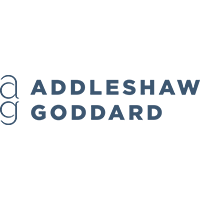

Legal and compliance director | DECATHLON



Noémie Wallaert
Legal and compliance director | DECATHLON
Team size: 130
What are the most significant cases and/or transactions that your legal team has recently been involved in?
Our company’s international expansion has given the legal and compliance department many opportunities to support a wide range of organic partnership and external growth projects.
In addition to this support, we implemented a more proactive and strategic posture with our vision to “make legal and compliance a strategic asset”. In this dynamic, we have engaged several offensive strategies to protect our activity from unfair competition or counterfeiting.
A recent decision against a company which infringed our intellectual property rights and identity rewarded four years of work and investigation on this subject.
Could you share an example of a time when you came up with an innovation that improved how your legal team works and did not come at a large expense?
We recently set up the “WE LAW’VE DECATHLON” project, a legal marketing approach deployed throughout our branch. The aim is to make legal and compliance accessible and understandable, while implementing an innovative communication strategy – communication plans for every team, legal design, podcasts, video series, escape games, among others – and monitoring it using KPIs to follow the performance of our communications.
It is a global user-centric approach that involves every member of the team in integrating this mindset into their daily work. The better the message is understood, the better the rules and processes are applied, and the better the company is protected. In this way, we aim to spread the legal and compliance culture positively and efficiently throughout the company.
How do you see the general counsel role evolving in France over the next five-ten years?
The role of the general counsel must undeniably evolve towards a better position in the governance of companies. Currently in France, the legal and compliance function often reports to the CFO, which is an outdated approach. This does not allow the function to develop to its full potential and add all the value it could. The general counsel must move from the role of “business partner” to that of “part of the business”.
Furthermore, the role of the general counsel needs to expand to cover the key issues of the future, such as ESG and risk management more generally.
As we have just obtained legal privilege for in-house lawyers, I hope that their responsibilities will be extended to bring them closer to those of lawyers, with for example, the possibility of pleading before the courts.
As we enter the next decade, what skills will a corporate legal team need to succeed in the modern in-house industry?
The skills expected of tomorrow’s lawyer go well beyond legal matters. They include a certain appetite for business and corporate strategy, so that lawyers have a better grasp of the issues facing companies and can provide appropriate legal support for operational projects. A knowledge of economics and finance will of course be very useful for the same purpose.
Project management skills will also be essential, as more and more projects will be cross-functional within the company and will therefore need to be managed in this way. Change management will be a highly appreciated skill as well, and more generally, the ability to work in an uncertain environment and to be adaptable.
Finally, mastery of digital tools, and in particular AI, will be imperative, as we move more and more towards the digitalisation of our jobs and the automation of low added-value tasks.
Group legal and compliance director | Decathlon